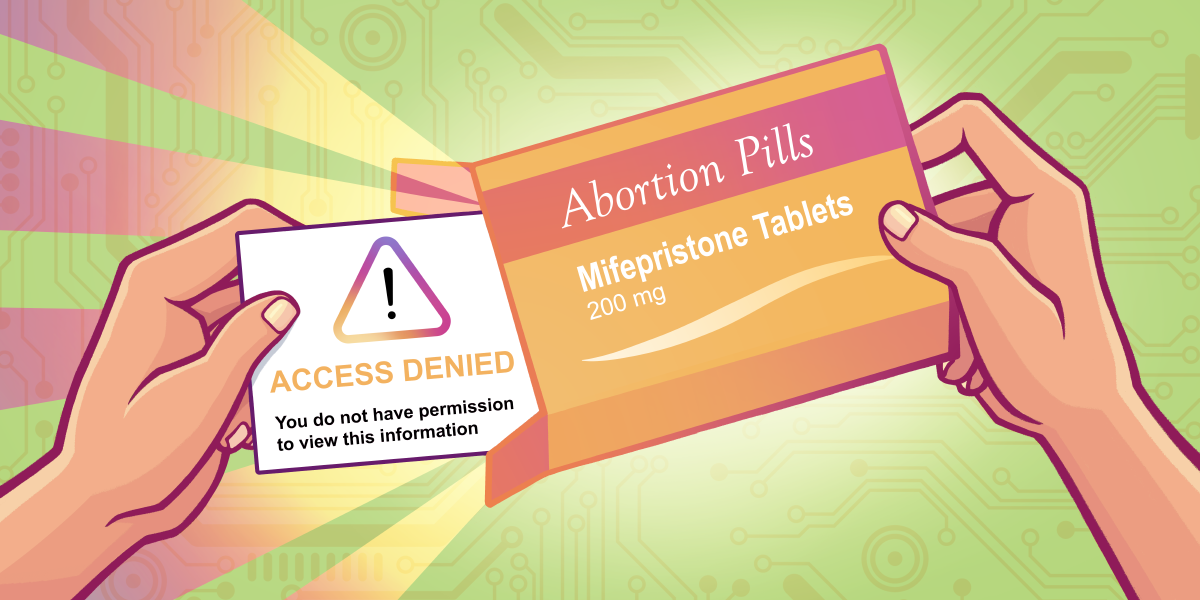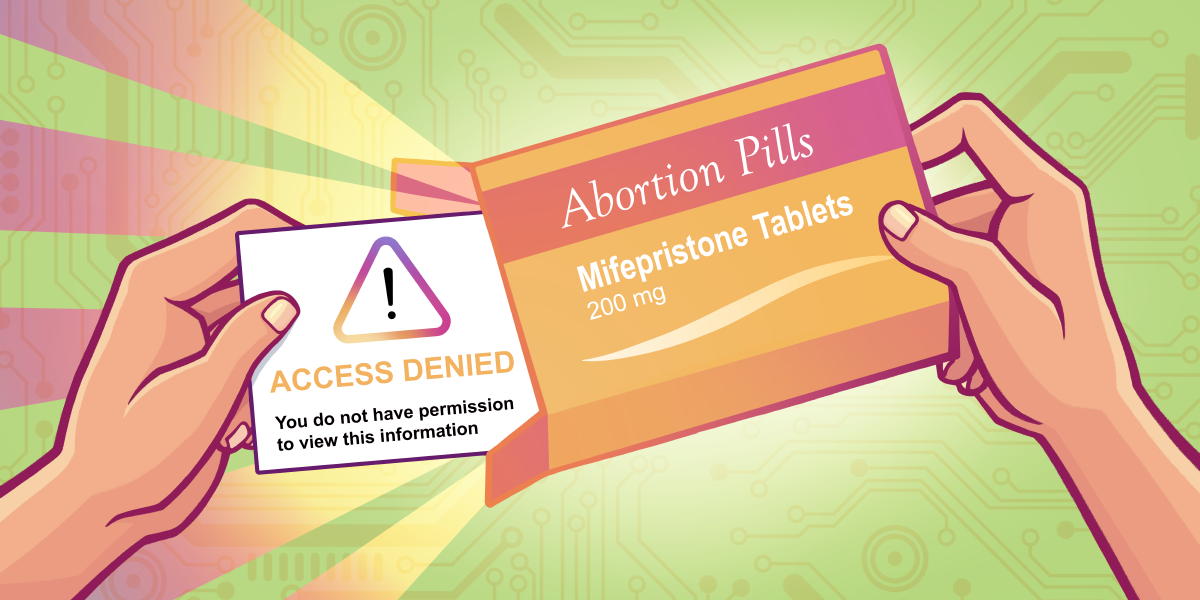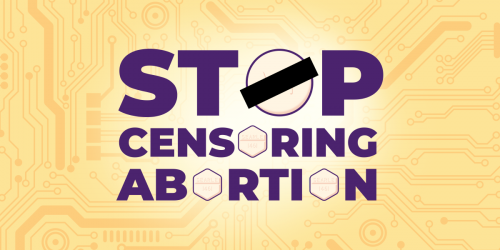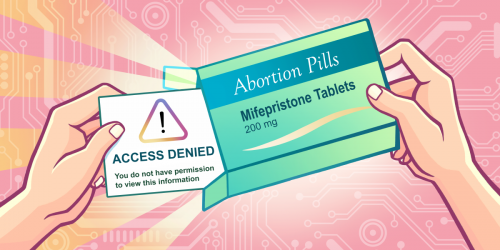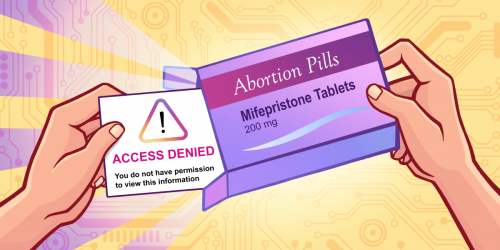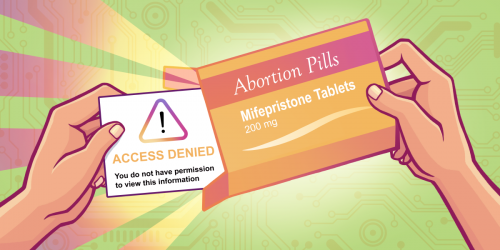UPDATE May 8, 2025: A committee substitute of SB 2880 passed the Texas Senate on April 30, 2025, with the provisions related to interactive computer services and providing information on how to obtain an abortion-inducing drug removed. These provisions, however, currently remain in the House version of the bill, HB 5510.
Once again, the Texas legislature is coming after the most common method of safe and effective abortion today—medication abortion.
Senate Bill (S.B.) 2880* seeks to prevent the sale and distribution of abortion pills—but it doesn’t stop there. By restricting access to certain information online, the bill tries to keep people from learning about abortion drugs, or even knowing that they exist.
If passed, S.B. 2880 would make it illegal to “provide information” on how to obtain an abortion-inducing drug. If you exchange e-mails or have an online chat about seeking an abortion, you could violate the bill. If you create a website that shares information about legal abortion services in other states, you could violate the bill. Even your social media posts could put you at risk.
On top of going after online speakers who create and post content themselves, the bill also targets social media platforms, websites, email services, messaging apps, and any other “interactive computer service” simply for hosting or making that content available.
In other words, Texas legislators not only want to make sure no one can start a discussion on these topics, they also want to make sure no one can find one. The goal is to wipe this information from the internet altogether. That creates glaring free-speech issues with this bill and, if passed, the consequences would be dire.
The bill is carefully designed to scare people into silence.
First, S.B. 2880 empowers average citizens to sue anyone that violates the law. An “interactive computer service” can also be sued if it “allows residents of [Texas] to access information or material that aids, abets, assists or facilitates efforts to obtain elective abortions or abortion-inducing drugs.”
So, similar to Texas Senate Bill 8, the bill encourages anyone to file lawsuits against those who merely speak about or provide access to certain information. This is intended to, and will, chill free speech. The looming threat of litigation can be used to silence those who seek to give women truthful information about their reproductive options—potentially putting their health or lives in danger.
Second, S.B. 2880 encourages online intermediaries to take down abortion-related content. For example, if sued under the law, a defendant platform can escape liability by showing that, once discovered, they promptly “block[ed] access to any information . . . that assists or facilitates efforts to obtain elective abortions or abortion-inducing drugs.”
The bill also grants them “absolute and nonwaivable immunity” against claims arising from takedowns, denials of service, or any other “action taken to restrict access to or availability of [this] information.” In other words, if someone sues a social media platform or internet service provider for censorship, they are well-shielded from facing consequences. This further tips the scales in favor of blocking more websites, posts, and users.
In three different provisions of the 43-page bill, the drafters go out of their way to assure us that S.B. 2880 should not be construed to prohibit speech or conduct that’s protected by the First Amendment. But simply stating that the law does not restrict free speech does not make it so. The obvious goal of this bill is to restrict access to information about abortion medications online. It’s hard to imagine what claims could be brought under such a bill that don’t implicate our free speech rights.
The bill’s imposition of civil and criminal liability also conflicts with a federal law that protects online intermediaries’ ability to host user-generated speech, 47 U.S.C. § 230 (“Section 230”), including speech about abortion medication. Although the bill explicitly states that it does not conflict with Section 230, that assurance remains meaningful only so long as Section 230’s protections remain robust. But Congress is currently considering revisions—or even a full repeal of Section 230. Any weakening of Section 230 will create more space for those empowered by this bill to use the courts to pressure intermediaries/platforms to remove information about abortion medication.
Whenever the government tries to restrict our ability to access information, our First Amendment rights are threatened. This is exactly what Texas lawmakers are trying to do with S.B. 2880. Anyone who cares about free speech—regardless of how they feel about reproductive care—should urge lawmakers to oppose this bill and others like it.
*H.B. 5510 is the identical House version of S.B. 2880.


